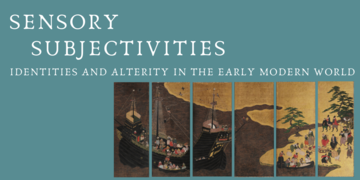2024-25 | Sensory Subjectivities: Identities and Alterity in the Early Modern World

Sensory Subjectivities considers how identities and alterity were constructed in early modernity through sensorial experience. Sensoriality in the early modern world was often shaped by cross-cultural encounter and exchange, forged under conditions of colonial and economic expansion and often in sites of competing spiritualities. Sensorial experience is ephemeral, which demands new lines of inquiry and new methodologies.
This project consists of a partnership between Leah R. Clark (Kellogg/Oxford) with Anuradha Gobin at the University of Calgary, Canada and Helen Coffey at the Open University. It brings together an interdisciplinary international network of scholars (historians; art, music and literary historians) to identify new transdisciplinary methodological frameworks to address multisensorial experiences, encounters, and subjectivities. The project contributes to calls for decolonising by demonstrating the importance of the senses to retrieve knowledge about the realities of groups who often left little physical traces such as material culture or texts in the archives. Sensory Subjectivities thus considers the experiences of marginalised groups as well as those we have more historical information for, to give equal weight and agency to multiple subject positions.
The project will include an online reading group, talks, and two workshops, run in collaboration with EMSE (Early Modern Sensory Experiences).
This project is co-funded by the TORCH International Partnership Scheme


